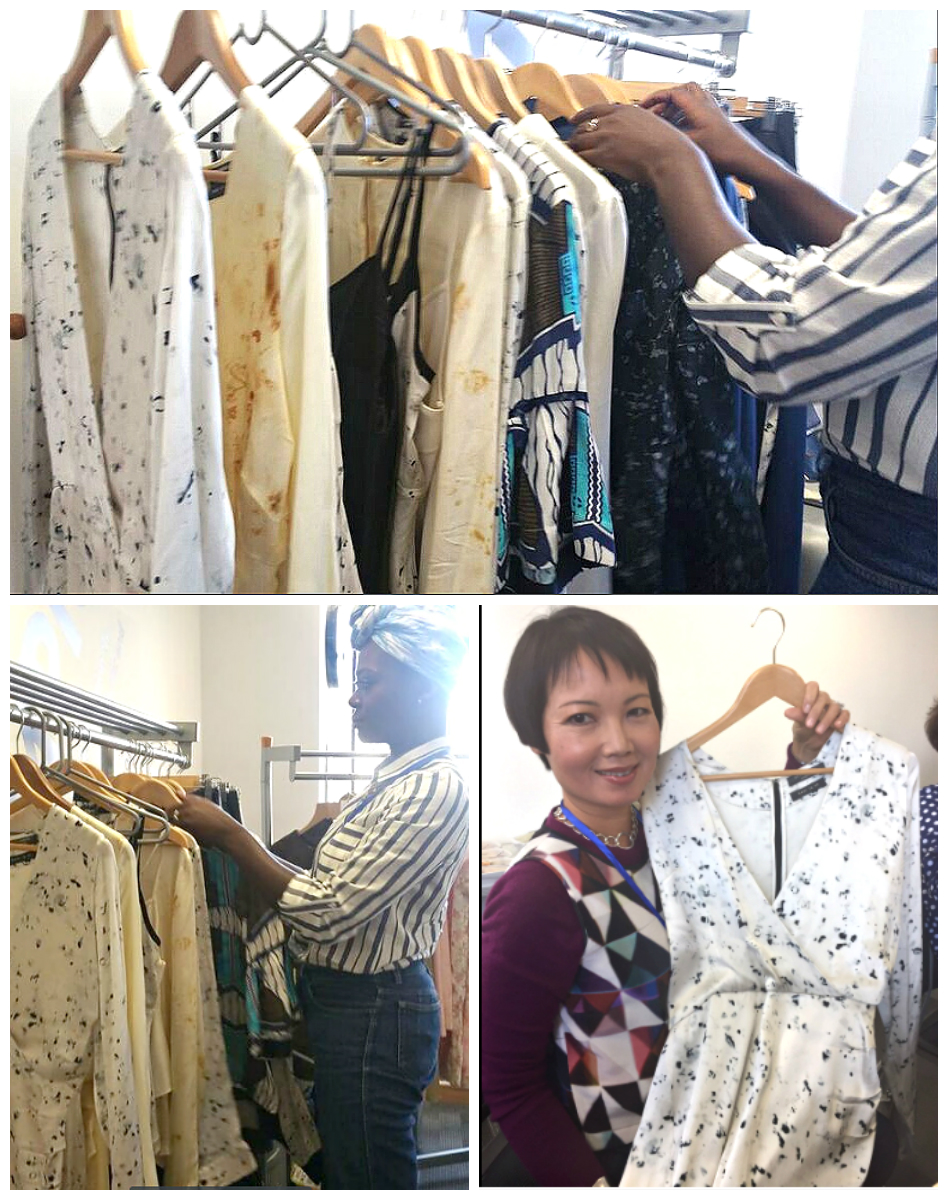Personal Styling the Ethical Way

International Director of FIPI, Huong Nguyen seen with our Inky Dress ( bottom right)
AWARENESS of ethically made fashion is growing; a better understanding of #whomademyclothes, a will to avoid companies who use sweatshops and who do not pay farmers enough for apparel crops. So when ready to buy ethical fashion, what are the options?
It is widely known that fast fashion retailers & mass production designer houses have been found using sweatshops, jeopardizing the health and safety of garment workers in off shore countries. Movies such as The True Cost highlight inadequacies in farming through to finishing garments, often using chemicals and dyes that damage the health and well being of wider local communities.
Instead, it is a viable option to have your garments made by a local tailoring business with the help of a personal stylist. Not only can this reduce fabric waste (cabbage) from garment production, it also ensures that you as a fashion consumer, buy only what you need. Even better if your personal stylist works with a local fashion brand that uses ethically made fabrics and sustainable processes.
Daisy from the Wardrobe Workshop, is a personal stylist and image consultant with a focus on sustainability and includes in her service, body shape and colour analysis. She had invited us to speak on ethical and sustainable fashion at the Federation of Image Professionals International Conference 2016 ( FIPI), alongside other ethical fashion brands and services. It is was encouraging to hear how they could introduce a more ethical way of consuming to their clients.
Top L-R: Kitty Ferreira– chic sustainable womenswear, Madia & Matilda– upcycled womens’ fashion, Bourgeoise Boheme– vegan footwear, Rentez- Vous– fashion rental marketplace, Wardrobe Workshop– sustainable personal styling
Both Kitty Ferreira and Madia Matilda offer made-to-order services where you can choose sleeve and hem lengths on existing styles or make a new style from scratch to your measurements. The end result: a better fitting and exclusive garment than any you’ll find on the homogeneous high street. Additionally, alterations allow you to ‘grow- with- your- garment’. As we gracefully grow older, our waistlines have a tendency to grow wider. Instead of discarding that dress that no longer fits, consider having seams expanded or more creatively, insert panels of your favourite off-cut fabric that you’ve had lying around for the longest time. It will add fresh, new life into your old garments, as will updating sleeves, changing hemlines, adding new buttons etc- the list is endless!
Do get in touch with us to enquire.
A shocking 350,000 tonnes of used clothing goes to landfill each year in the UK. (Wrap.org) Some of which is shipped off shore, negatively impacting local textile industries particularly in sub- Saharan Africa. “In Uganda, second-hand garments now account for 81% of all clothing purchases…Ghana (is) an example of a country where local textile industries have been negatively impacted- its textile and clothing employment fell by 80% between 1975 and 2000. Nigeria’s 200,000-person textile workforce has all but disappeared.” (BBC News). A more recent article on this topic can be read in the Huffinton Post, here.
So another viable option before discarding is to rent. Rentez- Vous allows you to hire garments as well as offer your old clothes for renting. Kitty Ferreira also allows you to *hire samples for special occassions. *on selected sizes only. Please enquire
Ultimately, extending the life cycle of your wardrobe is a prerequisite to ethical consumption habits. Use the services of image consultants, local tailoring businesses and receive something rather unique that will stand the test of time.
Buy less. Choose well
Comments are closed
